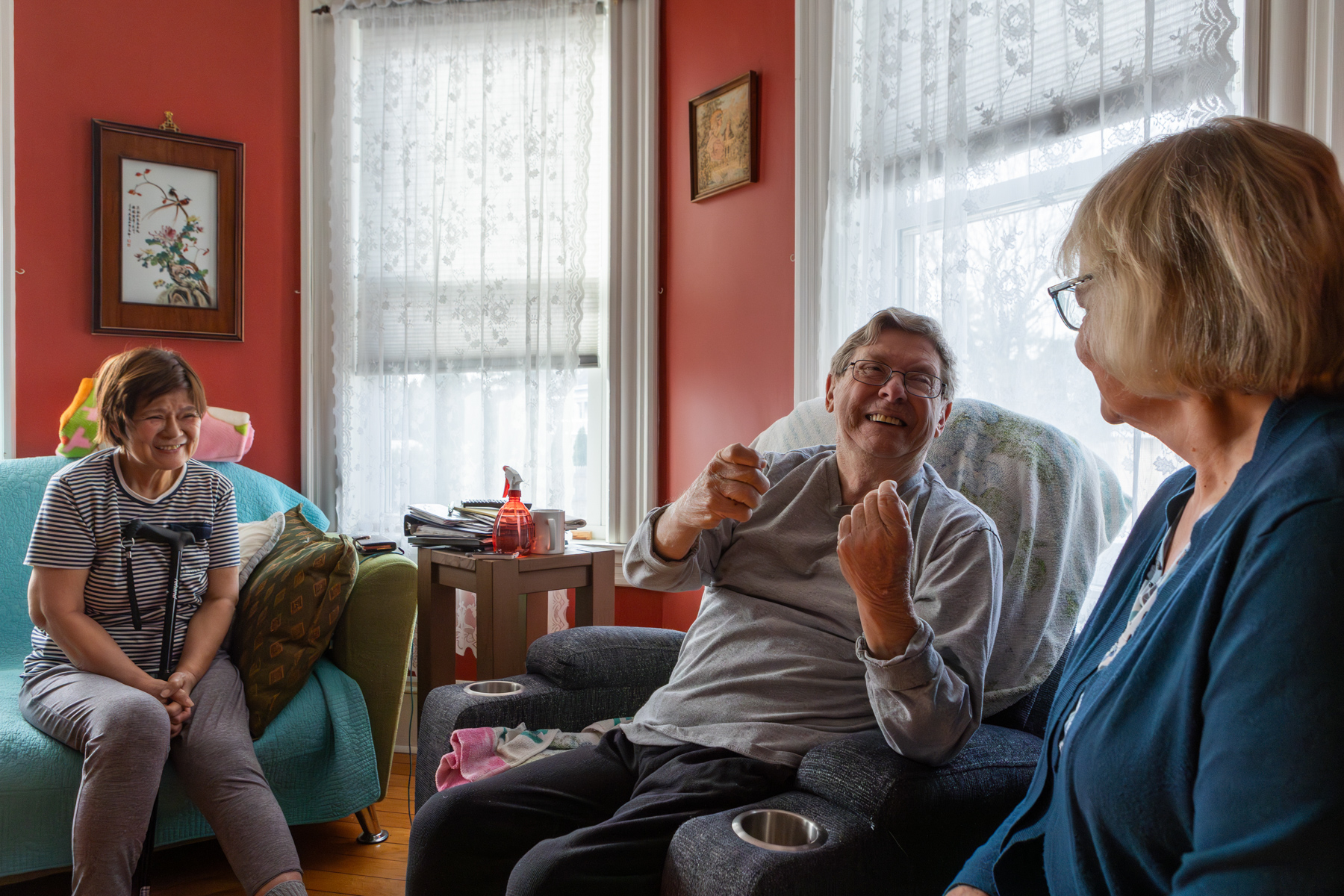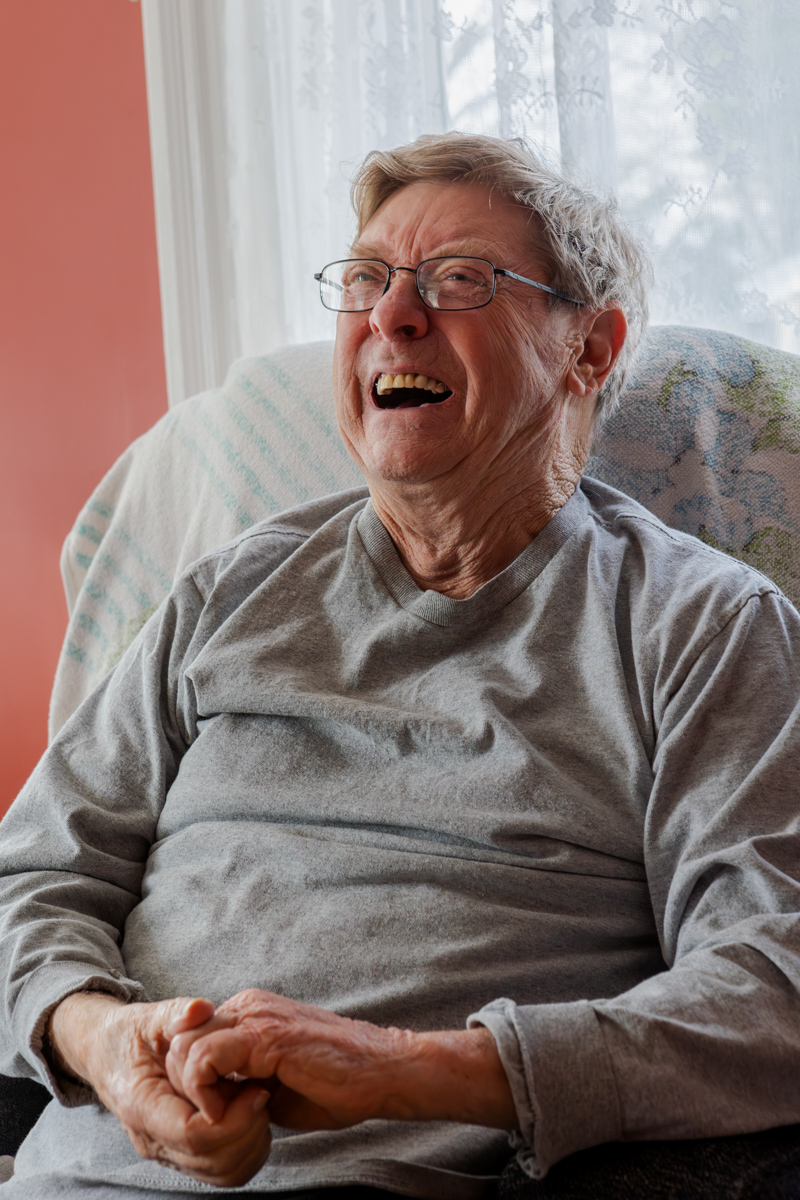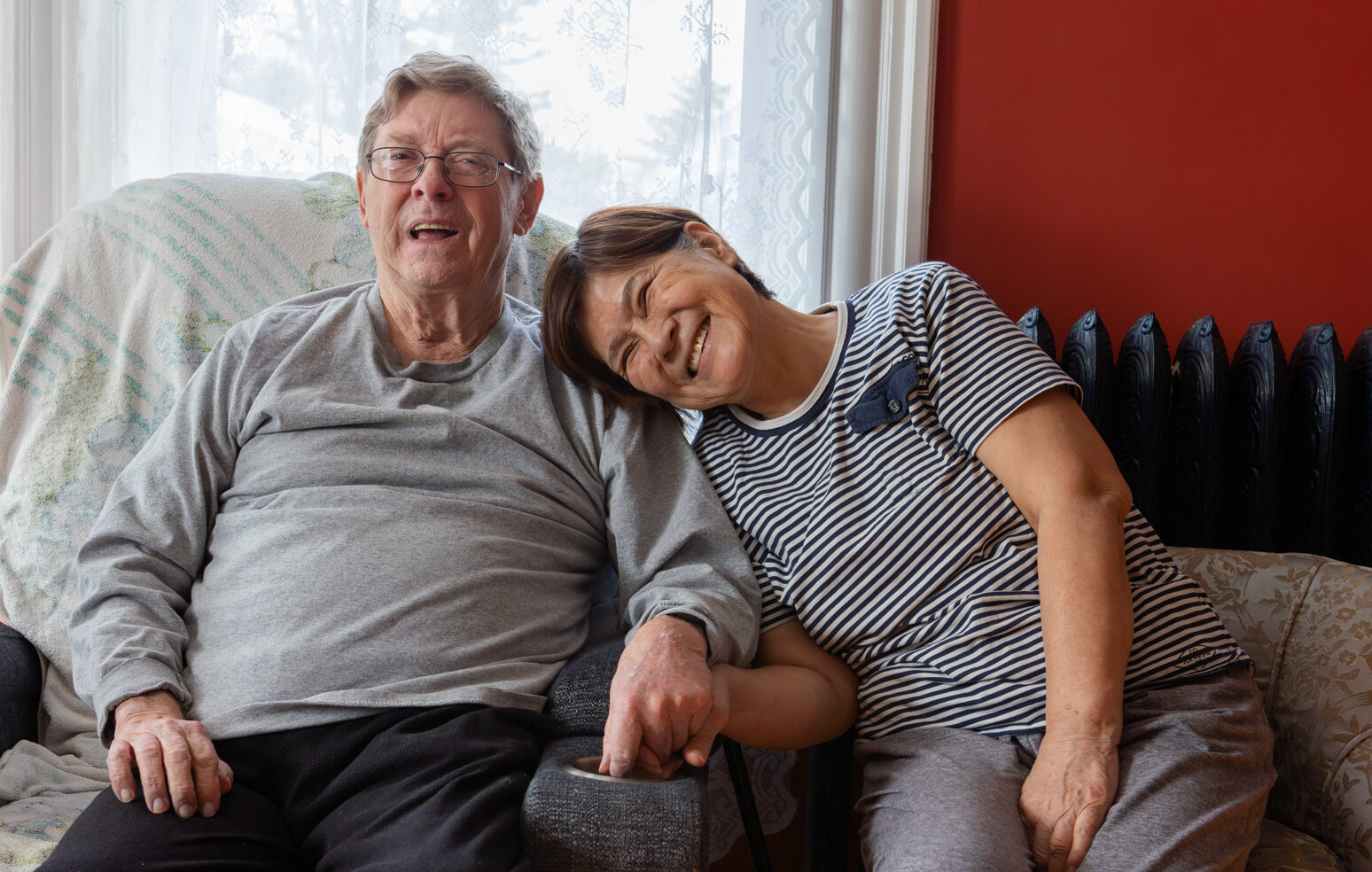It took Gerry years to get up the nerve to ask out Monica. When they finally went on a date, he admitted he was scared of failing at another relationship.
This did not fluster Monica. By then, she’d had a few ups and downs of her own. She’d learned this: “In life, you cannot do it alone,” she told Gerry. He listened. He was still scared, but he decided to try.
That was the ‘90s. Around 2020, after decades of marriage, Monica became more than Gerry’s wife: She became his full-time caregiver. His Alzheimer’s had progressed to the point where it wasn’t safe to leave him alone. She retired early to take care of him. By 2023, she and her daughter had been trading off round-the-clock care for more than three years.
That spring, Monica attended a caregiver support meeting at her local senior center. It happened to feature a guest speaker: Robin Walsh, representing HopeHealth’s Alzheimer’s and dementia program. Robin was there to explain some special resources in Massachusetts, including free respite care for those affected by dementia.
At first, Monica only half paid attention. She’d never considered bringing in someone besides family to help with Gerry.
Then she heard her own words echoed back at her.
“You can’t do it alone,” Robin said to the caregivers in the group.
This time, it was Monica who listened.
> Connect with the Alzheimer’s and Dementia Program

Free dementia support in Massachusetts: A brand new feeling
HopeHealth’s Alzheimer’s and Dementia Program is open to families who live in certain Massachusetts communities, and are affected by any form of dementia (not just Alzheimer’s).
In addition to information and emotional support, the program can provide up to 4 hours weekly of in-home respite (for up to 16 hours monthly), or up to 4 days monthly at an adult day health center. This time can be crucial for reducing caregiver burnout. It’s also completely free for families.
At first, Monica chose the home respite option. Once a week, for four hours, a trained respite caregiver came to their house to be with Gerry.
She used some of that precious time to reconnect with her daughter. “At that point, our whole life was consumed by my husband. It was really hard for my daughter too,” Monica says. Thanks to respite visits, “Once a week, we can go out for dinner or a walk and, you know, talk it out. It was a brand new feeling.”
Eventually, with help from Robin at HopeHealth, Monica decided to switch Gerry to a day program. Now, once a week, she drops him at the local adult health center in the morning, and picks him up midafternoon. The staff are excellent, she says, and the program gives Gerry more social interaction than he was getting at home. While he’s there, she goes grocery shopping, does errands, sees her daughter and other family and friends — just generally catches up, and takes a breath.
“That one day a week, it’s helping me,” Monica says.
> Read: From a dementia caregiver: 10 tips for self-care
Hospice at home: A big sigh of relief
About a year ago, Monica and Gerry went on a cruise to Argentina and Chile. Toward the end of the trip, the woman in the cabin next to theirs struck up a conversation. She was a nurse, she told Monica. She knew about dementia, and how demanding it can be for caregivers.
“Is your husband in hospice care?” she asked. Monica said no.
“You should request it,” the woman said.
It might have ended there, except for what the woman said next: “There’s no way you can do this on your own.”
Once again, Monica decided to listen. When she and Gerry returned home from their cruise, she reached out to his doctor about starting hospice with HopeHealth.
Now, a nurse comes to their home weekly to check in. If they ever need a hospice aide, social worker, chaplain or support from volunteers, it’s all just a phone call away. So is 24/7 help if Gerry’s symptoms ever change, or Monica simply has a question.
“I don’t want to put my husband in the hospital,” says Monica. “To know there is a 24-hour hotline I can call and somebody will help me — it gives me a big, big sigh of relief.”
> Read: 5 stages of dementia: What to expect & how to connect

110% dedication
In 2025, Monica will serve as president of her local Korean elderly association. One of her priorities is sharing information about HopeHealth’s dementia programs, and hospice in general.
“So many people suffer alone because they have no idea what kind of resources they could have,” Monica says. “HopeHealth works so hard to educate them. I want to give back what they have given me.”
She’s also honoring Gerry.
“Our entire marriage my husband was very, very supportive — he has this total 110% dedication to me. He’s done so much for me and my family. He’s the best human being I ever met,” Monica says. “He’s always helping everybody.”
Even as his dementia progresses, Gerry’s caring instincts still shine through. In fact, when it’s time for his weekly day program, it’s how Monica coaxes him out of the house.
“They need your help,” she tells him. “They need you to call Bingo.”
Every time, Gerry listens. Every time, he agrees to try.

